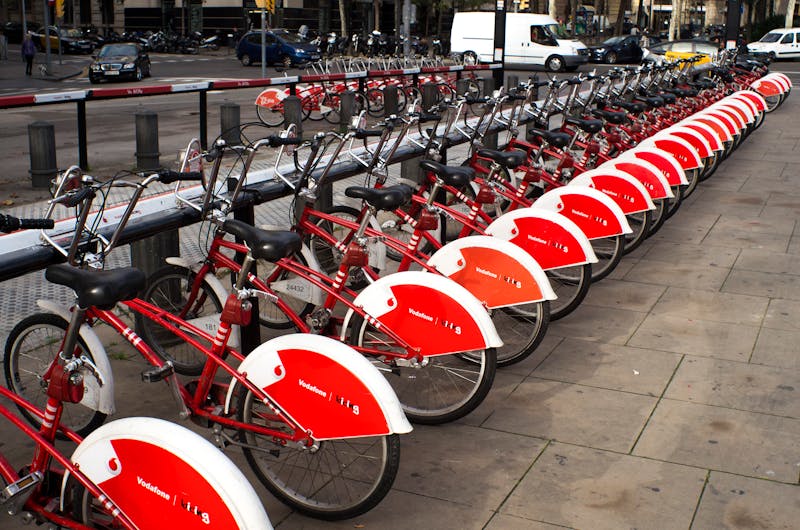
The access economy, also known as the sharing economy or renter economy, may represent a fundamental shift in how goods and services are consumed. In this economic and social model, individuals would rent or subscribe to access rather than purchasing items outright.
This change would be a radical departure from the long-standing Western economic model that has historically been centered around the desire for ownership. For much of human history, the aspiration to own property, whether land, a home, or personal goods, has been a powerful economic and social motivator. Yet, the rise of the access economy brings up the question: Can a world that discourages ownership be a realistic goal, especially when ownership has been so deeply tied to personal freedom, security, and the ability to control one’s destiny?
The reality is that the dream of ownership has never been universally attainable. Throughout history, many among the lower economic strata have faced deprivation of ownership opportunities, subject to conditions akin to serfdom, wage slavery, tenant farming, and other forms of economic bondage. Nevertheless, the aspiration for ownership has persisted. The “American Dream,” with its promise of “a chicken in every pot and a car in every garage,” epitomizes this desire for individual prosperity and security through ownership. This dream was never merely about the acquisition of material goods; it symbolized autonomy, dignity, and the opportunity for a better future.
We have seen that the idea of ownership is not merely a dream but a powerful tool for social control. Throughout history, ruling classes have used the inability of the lower classes to afford ownership as a means of exercising dominance. Feudalism, with its system of serfdom, ensured that land ownership – and thus economic power – remained concentrated in the hands of a few. Similarly, wage slavery and tenant farming have kept many in cycles of poverty and dependence.
However, after World War II, especially in the Western world, there was a significant push towards expanding the middle class through policies that promoted homeownership and broader access to assets. This expansion, powered by postwar prosperity and social mobility, helped create a period in which the middle class flourished, and ownership became more democratized.
Today, however, we are witnessing a potential reversal of this trend. The rise of the access economy and the accompanying rhetoric from influential organizations like the World Economic Forum (WEF) has raised concerns about whether we are returning to a more stratified economic model. The idea of “owning nothing and being happy” has become a flashpoint in debates about economic equity and social justice. Is this trend a modern realization of a more equitable and sustainable society, or is it a regression to a time when a small elite owned everything, and the masses were renters in perpetuity?
The access economy has undeniable benefits, especially in a rapidly changing world characterized by urbanization, digital transformation, and environmental concerns. For instance, renting and sharing models can reduce waste, lower carbon footprints, and provide flexibility in an increasingly precarious job market. The convenience of streaming services, shared cars, and co-working spaces offers consumers choices that match well with contemporary lifestyles, particularly for younger generations who may prioritize experiences over material possessions.
Yet, the question remains whether this model can be universally beneficial or whether it poses a risk of creating new forms of economic dependency. For those who cannot afford ownership, reliance on access-based services may lead to a future where many are permanently excluded from the security and generational wealth-building potential that ownership provides. If the ownership of assets – whether homes, vehicles, or even intellectual property – remains concentrated in the hands of a few, the result may be an exacerbation of economic inequality.
The WEF’s promotion of “owning nothing and being happy” is seen by some as an endorsement of an economic model that could reduce social mobility and deepen class divides. If the future is one where property and capital are concentrated among a small elite who profit from perpetual renting, then the middle class’s erosion may indeed resemble a regression to a historical norm of a tenant class beholden to an owner class.
Ultimately, the future of the access economy hinges on how it is implemented and who benefits from it. An economy that discourages ownership must ensure that access is equitable, that it fosters true economic mobility, and that it does not merely serve to consolidate power and wealth among a few. It must also consider the cultural and social dimensions of ownership – the sense of agency, pride, and stability it affords individuals and communities.
In a nutshell, while the access economy offers interesting possibilities for sustainability, innovation, and flexibility, it also brings up fundamental questions about economic justice and power.
If the push towards non-ownership becomes synonymous with diminishing opportunities for wealth creation and autonomy, it may indeed mark a return to a more hierarchical and unequal society. The challenge, therefore, is to find a balance where the benefits of access do not come at the cost of disempowerment or exclusion, and where the dream of ownership remains attainable for all.
Join us in making the world a better place. Cheers friends.